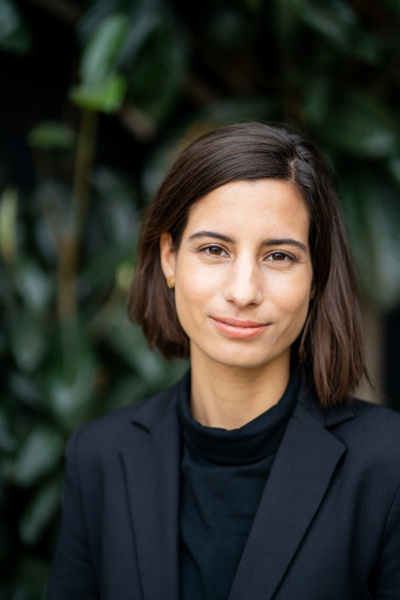For historian Rebekka Grossmann, Hebrew University’s scholarly climate has always been a draw. Hailing from Bonn, Germany, Grossmann earned her BA in Contemporary History from the University of Freiburg. It was then that she first encountered Hebrew University, as a participant on a faculty-led program to Israel. A seminar with HUJI’s Prof. Moshe Zimmermann offered her a glimpse into the university’s ecosystem, facilitating stimulating scholarly debate with the history department’s renowned faculty, and memorable interaction with her Israeli peers. The experience made a lasting impression and, even then, Rebekka knew she was destined to return.

“I was immediately drawn to Israel. I’d always been interested in Jewish history, but that first visit really piqued my interest in Israeli history.” Grossmann began studying modern Hebrew and wrote her BA thesis on Zionism in Theresienstadt. Her next step led Rebekka to the University of Oxford, where she earned her MPhil in Modern Jewish Studies. Then, at the encouragement of one of her Oxford advisors – an alum of the Hebrew University himself – she returned to Jerusalem for a PhD degree under the mentorship of Prof. Ofer Ashkenazi.
Rebekka’s PhD research – Unsettled Cameras: Photography, Mobility and Nation in Mandate Palestine – focuses on the role of photography during the Mandate period in shaping Jewish national politics and conceptions of Zionism. Its five chapters examine how photographic representations of Palestine were used to promote visions of the Jewish national presence in the Middle East from 1920-1948. “I was intrigued by the use of photography to strengthen Zionist ideology and iconography on the one hand, and as a counter-language on the other hand, an alternative space for artists and activists to express unconventional ideas about what it meant to live as Jews in Palestine.”
Grossmann completed her dissertation in 2020. After a postdoctoral fellowship at the University of California, Berkeley, she began a postdoctoral fellowship at the Franz Rosenzweig Minerva Research Center. She is now a fellow at the Jacob Robinson Institute for the History of Individual and Collective Rights.
Rebekka is currently involved in a collaborative book project on the role of Jewish photographers in Nazi Germany, funded by the ISF and the GIF. Still Lives: Jewish Photography in Nazi Germany is the first extensive investigation of Jewish photographic practices under Nazi German suppression.
In addition, her research at the Jacob Robinson Institute – Moving Worlds: Jews and Humanitarian Activism Beyond the Imperial Age – examines the role of Jewish publicists in shaping western perceptions of Third World nationalism before, during and after World War II. “I followed some of the photographers from Palestine into other countries, and began to consider how humanitarian photography influences the way we perceive other cultures. It sparked my curiosity about how photography shaped the discourse of the global south during the 1950’s and 1960’s.”
Grossmann’s research inspired the Institute’s inaugural conference on Jewish Questions and the Global South: Between Sovereignty and Human Rights, in which she played a key organizational role. Held in May 2022, participants from across the globe convened in Jerusalem to debate the nature of Jewish voices in the history of Cold War decolonization.
There’s no doubt that Grossmann and Ashkenazi are shining a spotlight on a field that is novel to the Faculty of Humanities, that of photographic history. What’s more, Rebekka’s path is a testament to the immeasurable ways in which international PhD students and postdoctoral scholars contribute to Hebrew University’s thriving research community.
When she’s not tied up in photographic history, Rebekka thoroughly enjoys living in Jerusalem. “The city is so richly layered. Having family in Berlin, I feel a parallel experience in both cities, walking amidst layers of historical periods and the memory of those who lived through them. I do my best to engage, take advantage of the wealth of culture that Jerusalem has to offer, and learn as much as I can from such an inspiring location.”